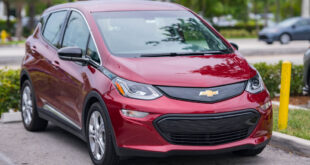Electric Cars for Beginners: Guide to Get You Started Electric cars (EVs) are revolutionizing the way we think about transportation. For beginners, understanding how EVs work and how they fit into modern lifestyles can be daunting. This guide will cover everything you need to know, from the basics of electric vehicles to practical tips for ownership.
What Are Electric Cars?
Electric cars are vehicles powered by electric motors instead of traditional internal combustion engines. They use electricity stored in a rechargeable battery pack, offering a cleaner, quieter, and more efficient driving experience.
Benefits of Electric Cars
- Environmentally Friendly: EVs produce no tailpipe emissions, reducing greenhouse gas emissions and air pollution.
- Lower Operating Costs: Electricity is generally cheaper than gasoline, and EVs have fewer moving parts, reducing maintenance costs.
- Energy Efficiency: Electric motors are more efficient than internal combustion engines, converting a higher percentage of energy into motion.
- Government Incentives: Many countries offer tax credits, rebates, or other incentives to encourage EV adoption.
How Do Electric Cars Work?
Electric cars are powered by three main components:
- Battery Pack: Stores electricity, typically made of lithium-ion cells.
- Electric Motor: Converts electrical energy into mechanical energy to move the wheels.
- Controller: Manages power delivery from the battery to the motor based on driver input.
Types of Electric Cars
- Battery Electric Vehicles (BEVs): Fully electric with no gasoline engine.
- Plug-in Hybrid Electric Vehicles (PHEVs): Combine an electric motor with a gasoline engine.
- Hybrid Electric Vehicles (HEVs): Primarily gasoline-powered but use electricity to enhance efficiency.
Charging Electric Cars
Electric cars can be charged at home or at public charging stations. Charging options include:
- Level 1 Charging: Uses a standard 120V outlet; slow but convenient for overnight charging.
- Level 2 Charging: Requires a 240V outlet; faster and suitable for daily use.
- DC Fast Charging: Offers rapid charging at public stations, ideal for long-distance travel.
Cost of Owning an Electric Car
- Initial Price: EVs often have a higher upfront cost but are becoming more affordable as technology advances.
- Fuel Savings: Lower electricity costs compared to gasoline.
- Maintenance Savings: Fewer components mean fewer breakdowns and lower repair costs.
- Resale Value: Many EVs retain value well, especially as demand increases.
10 Tips for Electric Car Owners
- Choose the right EV model for your driving habits.
- Install a Level 2 home charger for convenience.
- Monitor battery health and avoid frequent fast charging to extend lifespan.
- Plan trips around charging station availability.
- Keep tires properly inflated to maximize range.
- Take advantage of regenerative braking to recharge the battery.
- Research government incentives in your region.
- Use preconditioning to optimize battery performance in extreme temperatures.
- Regularly update your EV’s software for improved functionality.
- Join EV owner communities for tips and support.
10 FAQs About Electric Cars
- How far can an electric car go on a single charge? Most modern EVs offer ranges between 150–400 miles.
- Are electric cars expensive to maintain? Maintenance costs are lower due to fewer moving parts and no oil changes.
- Can I charge my electric car at home? Yes, with a standard outlet or a home charging station.
- What happens if the battery runs out? You’ll need roadside assistance or a tow to a charging station.
- Are electric cars better for the environment? Yes, especially if powered by renewable energy.
- Do electric cars work in cold weather? Yes, though range may decrease due to battery performance in low temperatures.
- How long does it take to charge an electric car? Charging time depends on the charger type, ranging from 30 minutes to several hours.
- Can I take an electric car on a road trip? Absolutely, with proper planning and access to charging stations.
- How long do EV batteries last? Most EV batteries last 8–15 years or more.
- What are the best electric cars for beginners? Models like the Nissan Leaf, Tesla Model 3, and Chevrolet Bolt are popular for their reliability and ease of use.
Conclusion
Electric cars are not just a trend—they are the future of transportation. They offer a sustainable alternative to traditional vehicles, with lower costs, less pollution, and advanced technology. As you explore the world of EVs, remember to assess your needs, budget, and driving habits to find the perfect model for you.
With growing infrastructure and technology advancements, adopting an electric car has never been easier or more practical. Take the leap into the electric revolution today and enjoy a cleaner, greener driving experience!
 oto car insurance used car repair
oto car insurance used car repair
